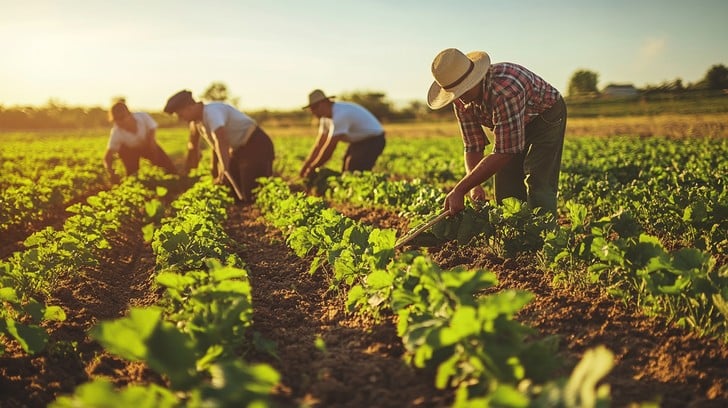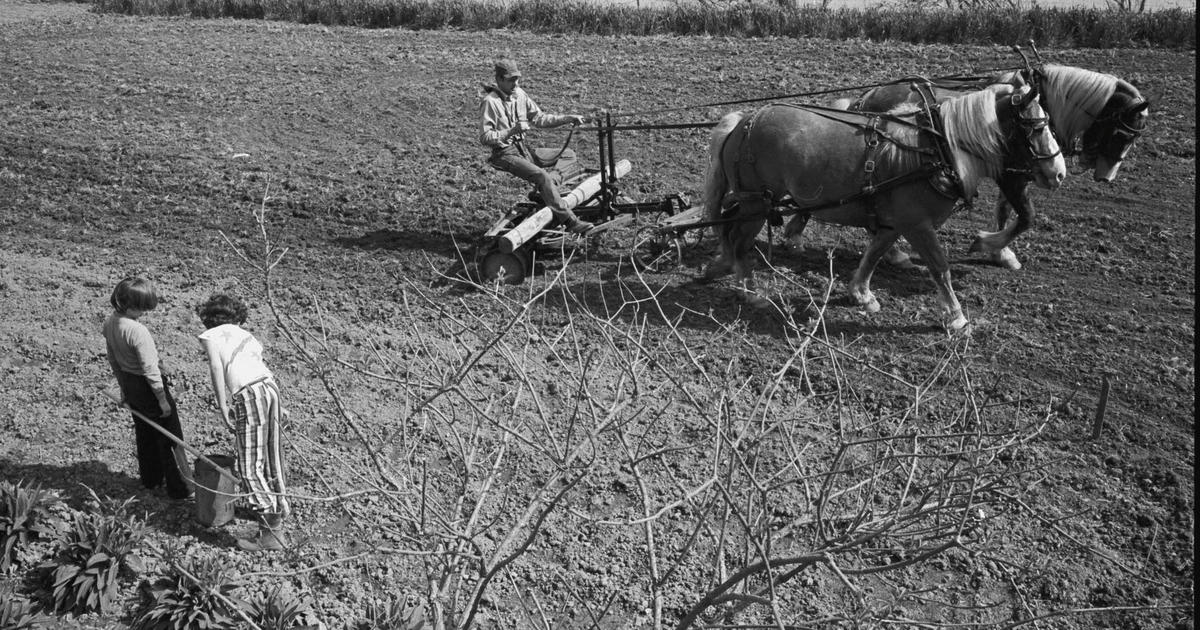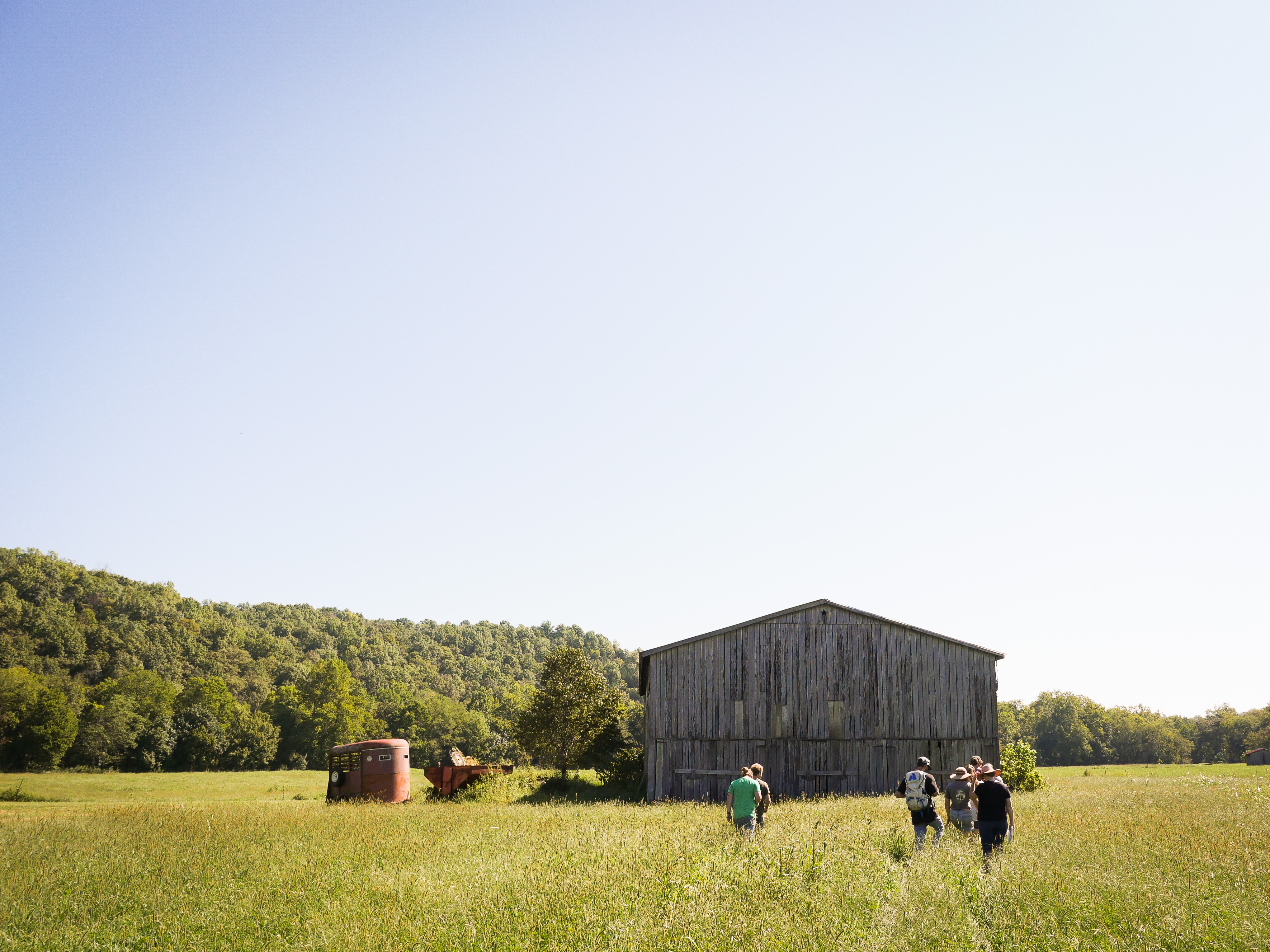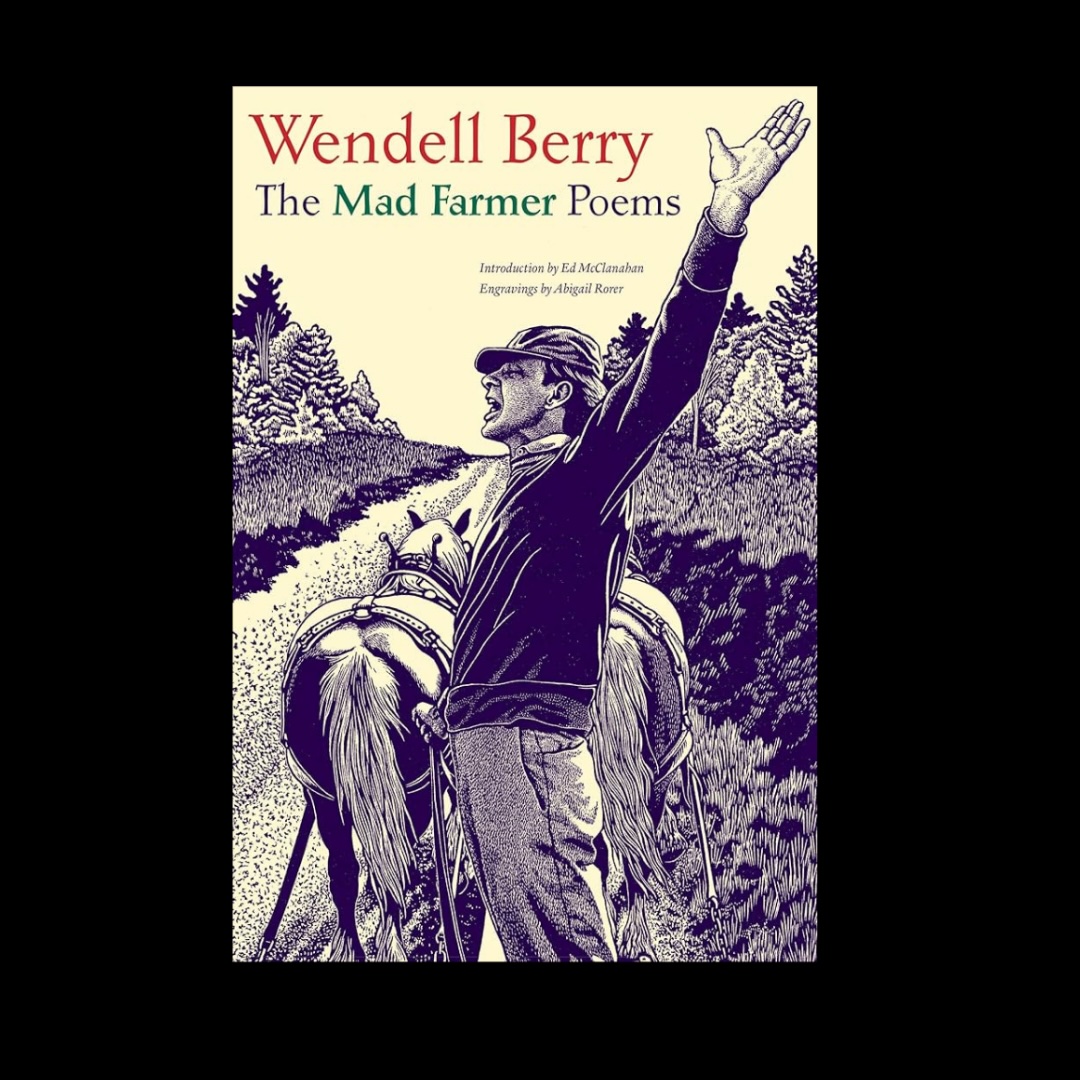Moxie: Devotion Over Everything
Oct 21, 2025Devotion breeds poise: in parenting, in coaching, in performance.
It’s not about pushing harder; it’s about attaching meaning to the push.
(Farmers tending crops by hand.)
ONE STORY
For most of human history, farming balanced effort with patience. It wasn’t about yield per acre. It was about rhythm.
Devotion wrapped in daily work.
Farmers knew their soil the way you know a person. Slowly, over years. They watched. Waited. Listened. They saved seed from the plants that thrived.
Then came the shift.
Modern agriculture asked a new question:
How much can we take?
Industrial farming made a promise: discipline the land, and you’ll have more.
Tractors replaced horses.
Chemicals replaced compost.
Scale replaced attention.
Yields exploded.
More became the new definition of success.
Spray this. Plow that. Eliminate variables. Maximize output.
But something else was happening, too.

(A young Wendell Berry, the 'Farmer-Poet', who authored more than 50 books, poems, essays, and novels. Winner of the National Humanities Medal, the National Book Critics Circle Award, and a reputation as one of America’s most trusted moral voices on simplicity, stewardship, and soul.)
Wendell Berry
In 1965, a young professor named Wendell Berry left New York and returned to Kentucky. He bought a small hillside farm. And instead of following the industrial model, he went backward.
He used horses.
No economic advantage. No efficiency gains.
Just one stubborn question:
How do I care for this land?
Berry was less interested in more for more's sake.
He was after something greater than more.

(Wendell farming his land. Photo courtesy of the film "Look and See.")
Discipline And Devotion
Berry farms seventy-five acres with draft horses.
His neighbor farms eight hundred with tractors and chemicals.
Both are fruitful.
But the source is completely different.
Discipline draws power from control.
It forces the land into compliance.
Spray. Plow. Dominate variables.
Devotion draws power from connection. (I might even call it love).
It comes from knowing the land, forty years of attention to these hillsides.
A conversation with the soil, the water, the living system.
The Long View
Fifty years later, Berry’s soil is richer than when he started. His methods sustain themselves.
His neighbor’s land? It needs constant inputs to keep producing. Stop controlling, and it collapses.
Berry didn’t just farm differently.
He proved something:
Control eventually exhausts what it touches.
Connection grows stronger the longer it lasts.

(Pictured: The Wendell Berry Farm School is dedicated to sustainable, community-based agriculture, emphasizing land stewardship and local economies.)
You can discipline a team through rigidity.
Or build power through trust.
You can force a goal through willpower.
Or devote yourself to something meaningful
and draw strength from that bond.
Berry’s farm will scale differently than his neighbors.
But his crop grows every year.
Because while discipline gets you ahead, devotion is what keeps you there.
The Brain Science - Devotion vs. Discipline
Discipline and devotion can both drive performance, but they do it through very different circuits in the brain.
Discipline
When we rely on discipline, we’re drawing heavily on the prefrontal cortex (PFC), the region responsible for self-control, inhibition, and rule-following.
-
It’s effortful.
-
It burns energy fast.
-
It’s finite, like a muscle that tires with overuse.
You can grind your way through tasks using the PFC alone, but you’ll feel tension and depletion. That’s why sheer discipline often leads to burnout or rebellion.
The signal underneath is “I have to.” It’s compliance-driven. Externally regulated. Cognitively expensive.
Devotion
Devotion, by contrast, activates an entirely different set of systems:
-
The mesolimbic dopamine pathway (ventral tegmental area and nucleus accumbens), our reward and motivation center.
-
The default mode network (DMN), responsible for identity, story, and purpose.
-
The ventromedial prefrontal cortex (vmPFC), integrates values with decision-making.
When you’re devoted ... aka, when the work means something ... you’re not overriding impulses; you’re aligning them.
The brain stops fighting itself.
Devotion tells the nervous system, this matters. And when something matters, your body releases dopamine, oxytocin, and norepinephrine in balanced amounts: fueling focus, resilience, and endurance without the exhaustion that comes from pure discipline.
The signal underneath is “I want to.” It’s conviction-driven. Internally regulated. Energetically sustainable.
The Power of Devotion
Here’s the paradox:
Devotion can feel soft, but it’s neurologically stronger than grit alone.
When you truly care about the people, the mission, and your craft, your brain shifts into a state of integrated coherence.
Heart rate variability improves.
The amygdala quiets.
The prefrontal cortex stays online even under stress.
That’s why devotion breeds poise, in parenting, in coaching, in performance.
It’s not about pushing harder; it’s about attaching meaning to the push.
In short:
-
Discipline draws power from control.
-
Devotion draws power from connection.
And the brain will always sustain what it’s connected to more easily than what it’s merely controlling.
📜 TWO QUOTES
“The world is not given by our fathers, but borrowed from our children.
We have a responsibility to take care of it, to love it, to keep it whole.” – Wendell Berry
“When love and skill work together, expect a masterpiece.” – John Ruskin
🚀 THREE TAKEAWAYS
1. Stop Grinding. Start Aiming.
When things get hard, most people think they need to just press harder. To somehow double down on discipline. But energy without direction is waste. Before you push, recalibrate. Ask: What am I actually trying to move? Five minutes of clarity beats five hours of blind effort.
2. Lasting Power Comes From Connection.
Leadership isn’t about perfect plans; it’s about staying close enough to reality to adapt. Talk less, listen more. Ask better questions. See what your people see. Connection gives you the information control can’t.
3. Tend What You Want to Last.
Pick one thing this week: a relationship, a routine, a piece of your craft, and treat it like soil. Show up. Notice. Adjust. Care compounds faster than intensity ever will.
🔍 MOXIE REFLECTIONS
-
Where in my work or life have you been relying on control instead of connection?
-
What are you grinding at that might actually need more clarity, not more effort?
-
What’s one relationship, habit, or field you could tend with more care this week?
🛠️ TOOLS FOR GROWTH
🧩 PATTERN RECOGNITION: Illusion of Control
When things feel uncertain, the brain compensates by trying to seize control. This illusion of control bias makes us overestimate our ability to manage outcomes and undervalue trust, patience, and connection.
We tighten our grip. We micromanage. We confuse motion with progress.
The Fix: Loosen the reins. Ask questions instead of issuing commands. Invite input instead of imposing certainty. Real power doesn’t come from control; it comes from connection.
🧠 MENTAL SKILL OF THE WEEK: Surrendered Focus
Surrendered Focus is the ability to stay fully engaged without trying to control every variable. It’s what great leaders, coaches, and performers do when they trust their preparation and stay present to what’s actually happening, not what they wish were happening.
Instead of tightening up under pressure, they open up. They adapt. They listen. They stay connected.
How to train it:
-
Before key moments, take one slow breath and remind yourself: “My job is to respond, not to control.”
-
In conversation, resist the urge to fix. Aim to stay curious, instead.
-
After the moment, review what you noticed, not just what you achieved.
🌱 ONE MORE THING
Here's a taste of the poet side of the famous farmer-poet.
This poem is called The Peace of Wild Things.
"When despair for the world grows in me
and I wake in the night at the least sound
in fear of what my life and my children’s lives may be,
I go and lie down where the wood drake
rests in his beauty on the water, and the great heron feeds.
I come into the peace of wild things
who do not tax their lives with forethought
of grief. I come into the presence of still water.
And I feel above me the day-blind stars
waiting with their light. For a time
I rest in the grace of the world, and am free."
– Wendell Berry

